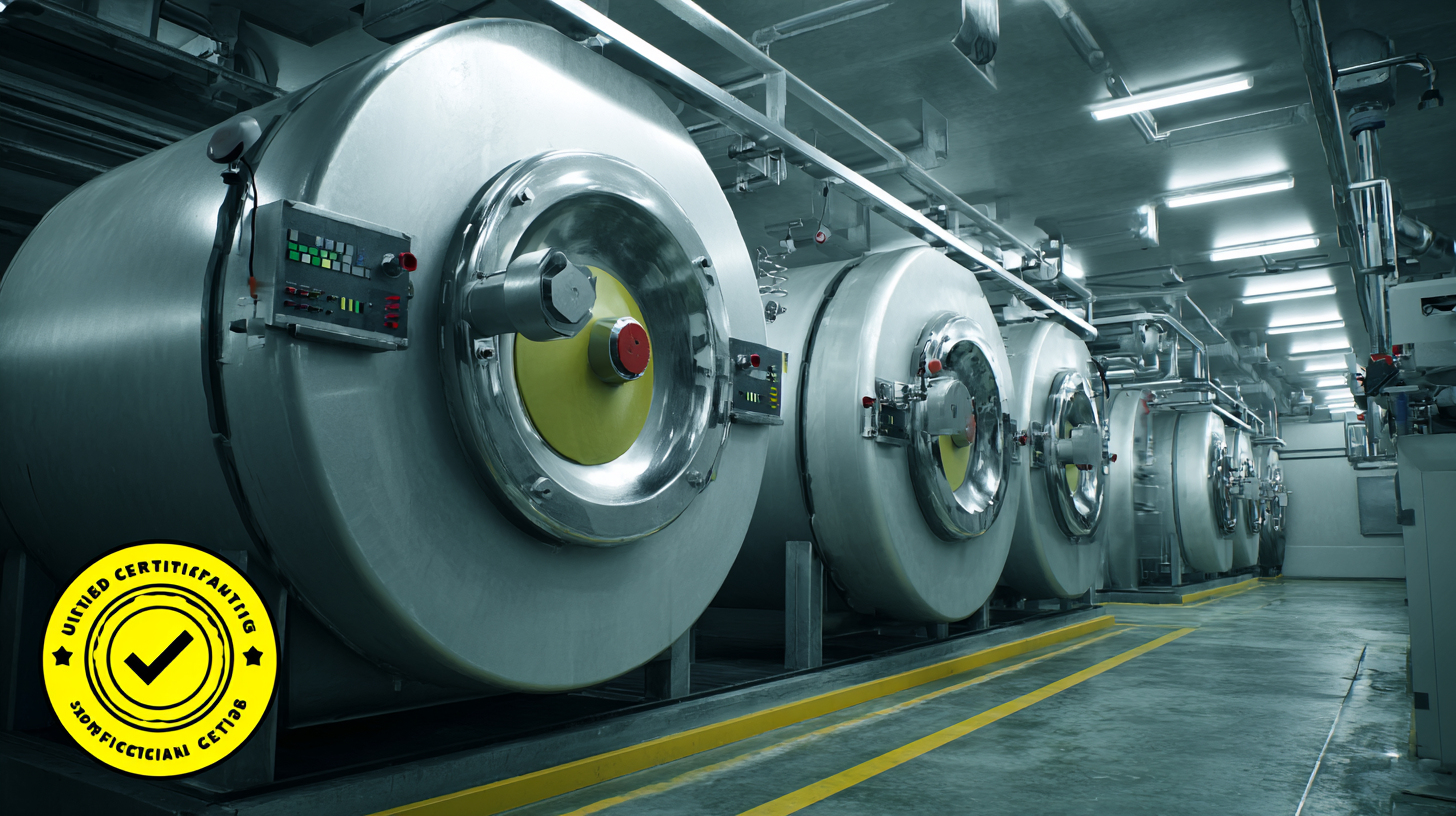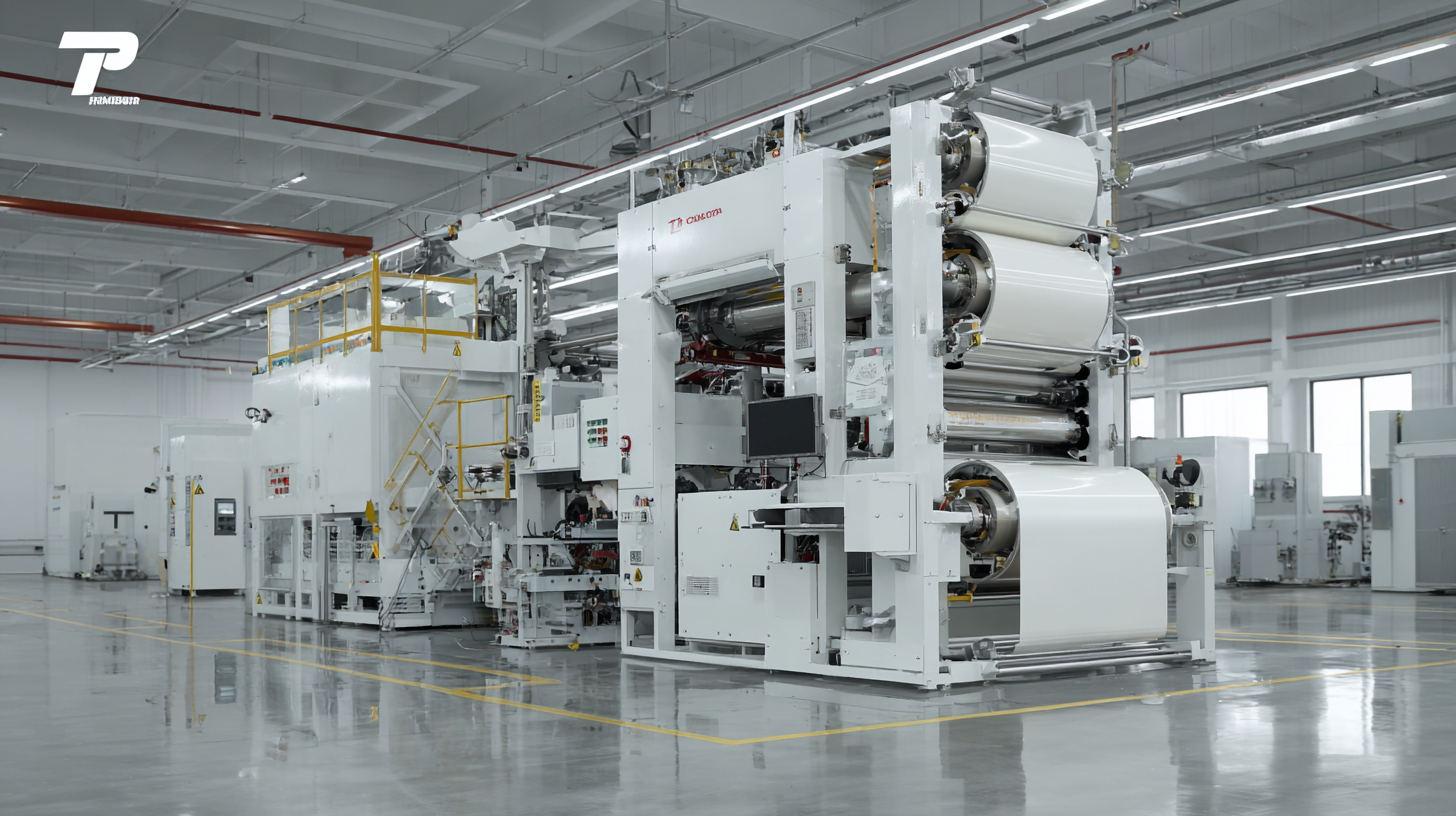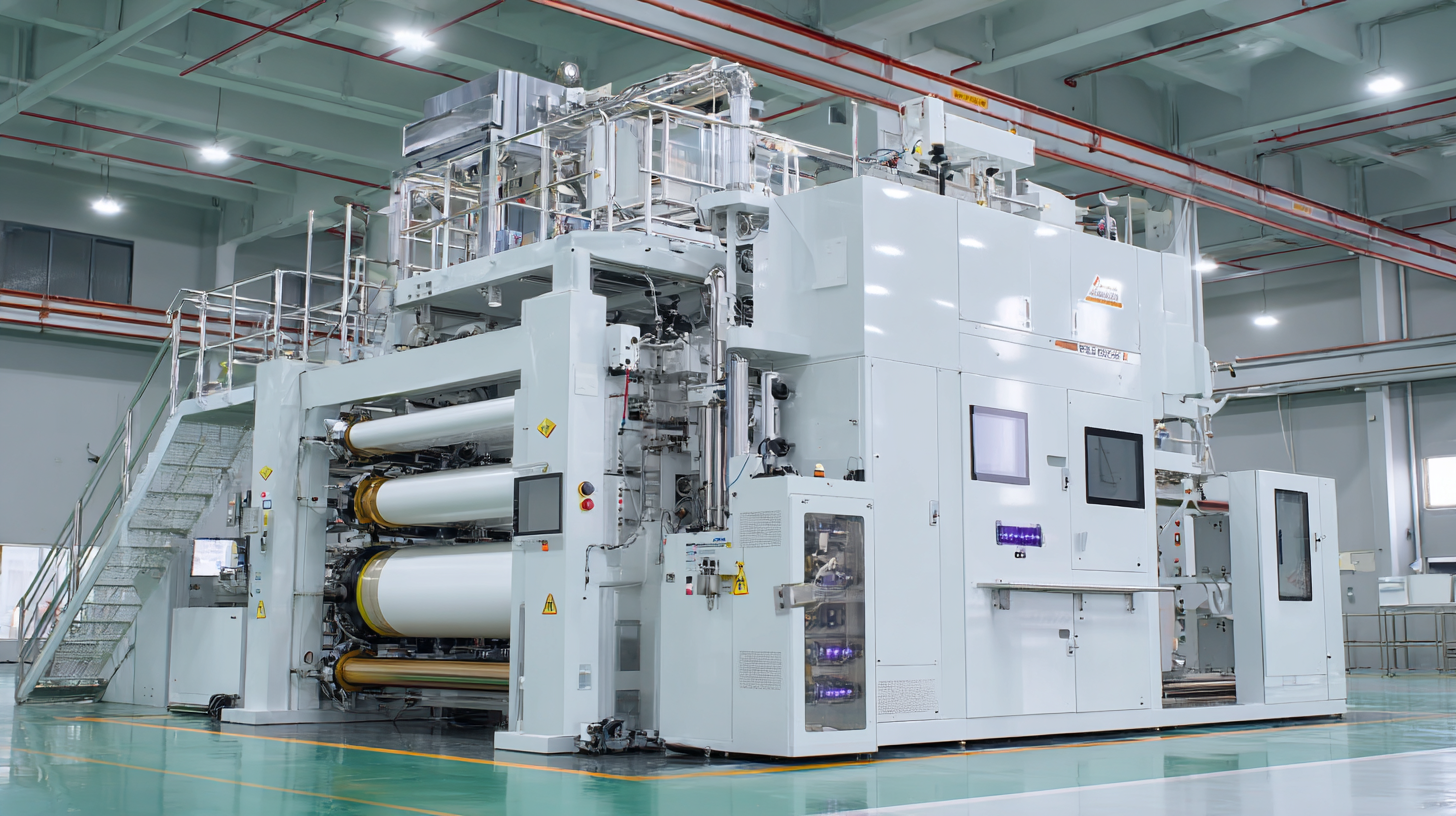
The global coating machinery market is experiencing significant growth, driven by advancements in technology and increasing demand for customizable solutions across various industries. According to a recent report by MarketsandMarkets, the coating machinery market is projected to reach $10.5 billion by 2026, at a CAGR of 5.2% during the forecast period. This growth emphasizes the critical role of Customizable Coating Machines, which offer unique tailoring options for different applications, allowing businesses to optimize their production processes and meet specific customer requirements.

As companies engage in export-import practices, understanding the significance of trade certifications for these advanced machines becomes paramount. Proper certifications not only ensure compliance with international quality standards but also facilitate smoother transactions and enhance market credibility. This blog aims to shed light on the essential trade certifications necessary for best practices in the export and import of Customizable Coating Machines, providing valuable insights for manufacturers and exporters alike.
In the competitive landscape of international trade, securing trade certifications for customizable coating machines is not just a bureaucratic step; it's a vital element that underlines quality, safety, and credibility in export practices.
Trade certifications provide manufacturers with a framework to demonstrate that their machines meet specific industry standards and regulations. This assurance can significantly enhance the perception of quality among potential buyers, fostering trust and encouraging investment.
Moreover, the importance of trade certifications extends to regulatory compliance, as they often serve as a prerequisite for market entry in various countries. Different regions may have unique certification requirements, and adhering to these standards not only avoids penalties but also facilitates smoother transactions during the import process.
By prioritizing the acquisition of relevant trade certifications, manufacturers can effectively navigate the complexities of international trade, reduce the risk of costly delays, and expand their market reach with confidence.

The landscape of customizable coating machines is rapidly evolving, driven by technological advancements that promise to transform manufacturing practices by 2025. According to a recent market analysis report by ResearchAndMarkets, the global market for coating machines is expected to reach $6.5 billion by 2025, with a significant emphasis on automation and precision technology. Such innovations include the integration of AI and machine learning for real-time quality control, which can lead to a reduction in material waste by up to 20%.
As these machines become increasingly sophisticated, manufacturers must stay informed about critical trends shaping the industry. One key development is the push towards eco-friendly coating options. In a survey conducted by Coatings World, over 70% of businesses indicated their intention to adopt sustainable practices. This shift is not only beneficial for the environment but can also enhance product appeal, making eco-friendly coatings a lucrative market segment.
Tip: For companies involved in import/export practices, understanding and adhering to regulatory certifications for these new technologies is crucial. Staying up-to-date with international standards will facilitate smoother trading processes and open doors to new markets. Furthermore, investing in training for staff on new technologies will ensure that teams are prepared to leverage the full potential of advanced coating machines.
The impact of global market trends on trade certifications for coating technologies has become increasingly significant in today's interconnected world. As industries expand and evolve, particularly in the aerospace and automotive sectors, the demand for robust trade certifications for coating technologies has risen substantially. By 2034, the growth of the aircraft parts MRO market is expected to reach $86.5 billion, showcasing the need for advanced coating solutions that meet stringent international standards. This growth reflects both the increasing demand for air travel and the critical nature of maintenance, repair, and operations in ensuring safety and efficiency.
Moreover, as environmental regulations tighten globally, industries are facing pressure to comply with new trade certifications that emphasize sustainability. Companies engaged in import-export practices must adapt to these evolving standards, which can include everything from eco-friendly materials to innovative coating technologies that reduce environmental impact. The emergence of green trade barriers, particularly from Western markets, highlights the necessity for businesses to preemptively align with international compliance requirements to maintain competitiveness. As the coating technology sector continues to innovate, understanding these market dynamics will be essential for businesses aiming to secure their place in the global marketplace.
Navigating the complexities of export and import practices involves a thorough understanding of compliance and standards, particularly for customizable coating machines. These machines, essential in various industries such as automotive, aerospace, and electronics, must adhere to stringent regulations designed to ensure safety and quality. Understanding the specific certifications required for these machines can lead to smoother international transactions and help companies avoid costly delays.
Compliance with international standards often means obtaining certifications like CE marking for products destined for the European market or complying with ISO standards. Manufacturers and exporters should stay informed about the latest developments in regulatory requirements, as these can vary significantly by region. By investing time in understanding these standards and acquiring the necessary certifications, businesses can enhance their marketability and reputation while ensuring their products meet the expectations of international buyers.

The coating machine industry is on the brink of a technological revolution, driven by innovations that promise enhanced efficiency and versatility. One of the most notable advancements is the integration of artificial intelligence and machine learning algorithms into the coating process. These technologies allow for real-time adjustments to be made, ensuring optimal application of coatings for various substrates. As manufacturers focus on customizing solutions for specific industry needs, certifications are becoming crucial to ensure that these machines meet stringent quality and safety standards, particularly in export and import practices.
Additionally, sustainable practices are reshaping the future landscape of coating machines. With growing awareness of environmental impacts, new certifications targeting eco-friendly materials and processes are emerging. Innovations in bio-based coatings and waste-reduction technologies are gaining traction, highlighting the industry's commitment to sustainable development. As these certification processes evolve, they not only enhance marketability but also foster trust among international buyers, ensuring that the best customizable coating machines are both effective and environmentally responsible.
| Certification Type | Description | Applicable Standards | Industry Benefits | Future Innovations |
|---|---|---|---|---|
| ISO 9001 | Quality Management Systems | ISO Standards | Improved product consistency | Integration of AI in quality assurance |
| CE Marking | EU Product Safety Standards | EU Directives | Market access in Europe | Augmented reality for user instructions |
| UL Certification | Safety and performance testing | National Electrical Code | Enhanced safety assurance | Smart sensors for real-time monitoring |
| ASTM Standards | Material and product testing | ASTM International Standards | Quality assurance in materials | Nanotechnology in coatings |
| ISO 14001 | Environmental Management Systems | ISO Standards | Reduced environmental impact | Sustainable materials development |